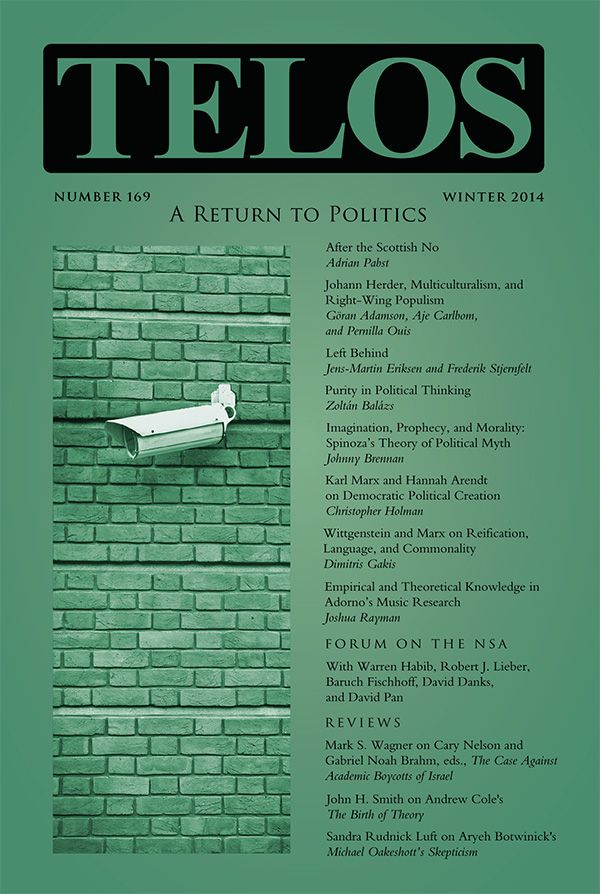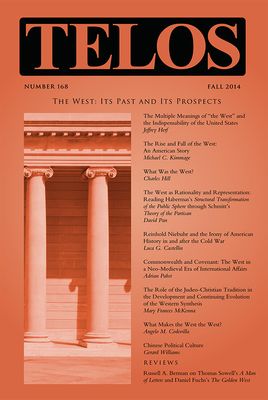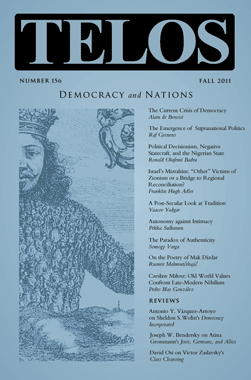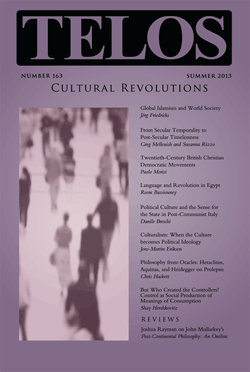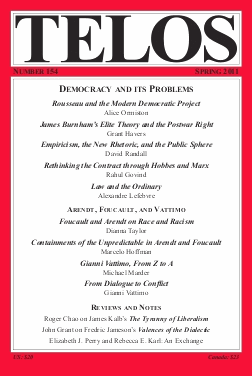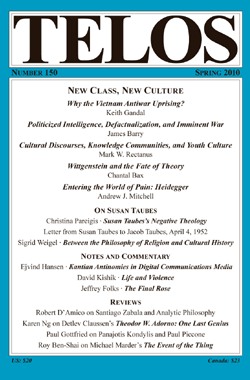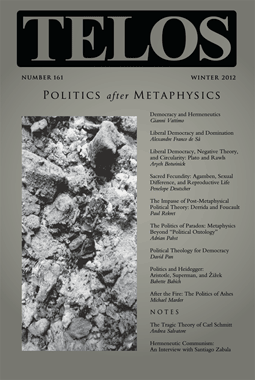Telos 169 (Winter 2014): A Return to Politics
A Return to Politics
Political opinion, once regarded as a manufactured consensus foisted on the public by a government–media alliance, is now clearly entering a new, more volatile formation, marked by the anarchic dissemination of information, a truly global networking potential, and the emergence of unexpected allegiances. There is no self-evident common denominator in this eruption of political activity, except in the sense that unconstrained creative impulses have challenged the structures of traditional control. In Telos 169, we explore this return of politics in some of its crucial current contests as well as in the history of theorizing political aspirations.
Introduction
Russell A. Berman
After the Scottish No: The Crisis of Liberal Democracy and the Case for “Mixed Government”
Adrian Pabst
Johann Herder, Early Nineteenth-Century Counter-Enlightenment, and the Common Roots of Multiculturalism and Right-Wing Populism
Göran Adamson, Aje Carlbom, and Pernilla Ouis
Left Behind
Jens-Martin Eriksen and Frederik Stjernfelt
Purity in Political Thinking
Zoltán Balázs
Imagination, Prophecy, and Morality: The Relevance and Limits of Spinoza’s Theory of Political Myth
Johnny Brennan
Karl Marx and Hannah Arendt on Democratic Political Creation: From Councilism to Cochabamba
Christopher Holman
Wittgenstein and Marx on Reification, Language, and Commonality
Dimitris Gakis
Empirical and Theoretical Knowledge in Adorno’s “Experimentation in Music Psychology”
Joshua Rayman
Forum on the NSA
Notes on the NSA
Warren Habib
Security vs. Privacy in an Era of Terror and Technology
Robert J. Lieber
Ethical and Social Issues in Military Research and Development
Baruch Fischhoff
A Modern Pascal’s Wager for Mass Electronic Surveillance
David Danks
The Transformation of the National Security Agency
David Pan
Reviews
Escape from the City of Brass
Mark S. Wagner
Hegel for the (Middle) Ages
John H. Smith
Substituting Mysticism for Skepticism
Sandra Rudnick Luft
